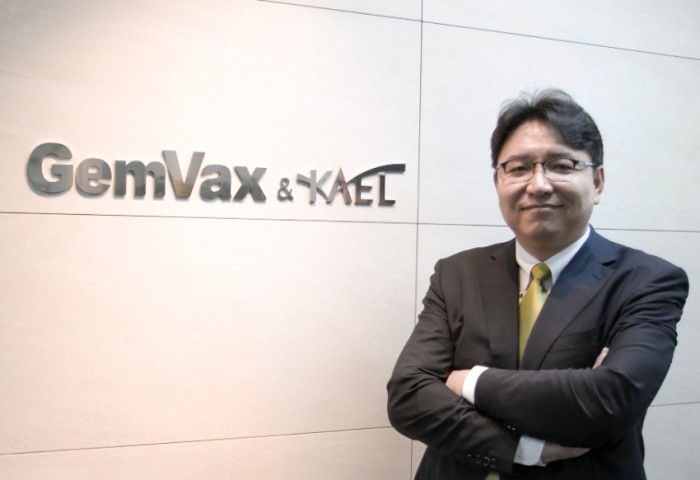기업
GemVax’s BPH published in the BJU International
by Jongwon Jang

▲송형곤 젬백스 사장
The results have been presented to the European Association of Urology, and published in the British Journal of Urology International. The CEO of GemVax said phase III trials will start this year in South Korea, as well as worldwide.
Phase II clinical trial results of GemVax & KAEL’s drug candidate for the treatment of benign prostatic hyperplasia (BPH), GV1001, have been published in the British Journal of Urology International (BJUI). GV1001 has been presented in various South Korean and International journals and conferences, and the phase III clinical trials for the drug candidate are now attracting attention.
GemVax & KAEL have announced that the results of their phase II clinical trial (assessing efficacy and safety) for GV1001, a drug candidate for the treatment of BPH, have been published in the BJUI.
GV1001 is a telomerase-derived peptide composition. It has been reported that the peptide composition has anti-inflammatory, anti-oxidative, damaged DNA repair, and anti-aging effects; and based on these reports, researches are being conducted to expand its indications into prostatic hyperplasia, Alzheimer’s disease, and dementia.
The research published in the BJUI was a phase II clinical trial to assess the efficacy and safety of GV1001 in 116 BPH patients. The trial was designed as a randomized, single-blind, placebo-controlled, parallel-group and multi-site (8 sites, including Dongguk University Gyeongju Hospital) phase II study.
The results of the phase II trial observed that the GV1001 treated group showed significantly reduced International Prostate Symptom Score (IPSS) and volume of prostate, compared to the placebo control group. Also, no clinically meaningful adverse drug reactions were observed in the GV1001 treated group.
IPSS is a scoring system to measure the severity of BPH by assessing 7 prostate-related symptoms (including the feeling of incomplete bladder emptying, and frequency thereof), and their interference with daily activities. IPSS is widely used to evaluate the efficacy of BPH treatment.
Dr. Kyungsup Lee, professor at the Dongguk University Gyeongju Hospital, and Principal Investigator of this phase II clinical trial, said, “Along with the reduction in IPSS and the volume of prostate in the GV1001 treated group, it is also clinically remarkable that there was no significant difference in the International Index of Erectile Function (IIEF) between the treatment group and control group. These results suggest that GV1001 has sufficient grounds and potential to be developed as a new drug for the treatment of BPH, through domestic and global clinical trials.”
In other words, GV1001 can be a good alternative to finasteride (brand name: Propecia), a drug currently widely used for the treatment of BPH, but which as a side effect may lower libido.
GemVax is actively informing the medical scientific community of the results of the phase II trial via South Korean and International conference/journals. The results were presented last year to the Asian Pacific Prostate Society, and this year to the Korean Prostate Society and European Association of Urology (EAU). These reports are for evaluation and to gather the opinions of experts on the results of the phase II trial for GV1001, and also to facilitate carrying out of the phase III trial. The research paper on GV1001 was selected by 2018 EAU, held this March in Denmark, as an outstanding paper.
Song, Hyong-gon, CEO of Gemvax, said, “A drug development company’s technology and future value should be assessed by the efficacy of its drugs, as presented in conferences, and in its research papers, as published in SCI journals. The results regarding GV1001 have already been presented, and have gained wide attention in domestic and international conferences. The results have also just been published as a paper in the BJUI.”
Song added that “Publication of the paper in the BJUI will help to initiate phase III trials for GV1001, which are planned to start this year in South Korea, as well as worldwide.”



















